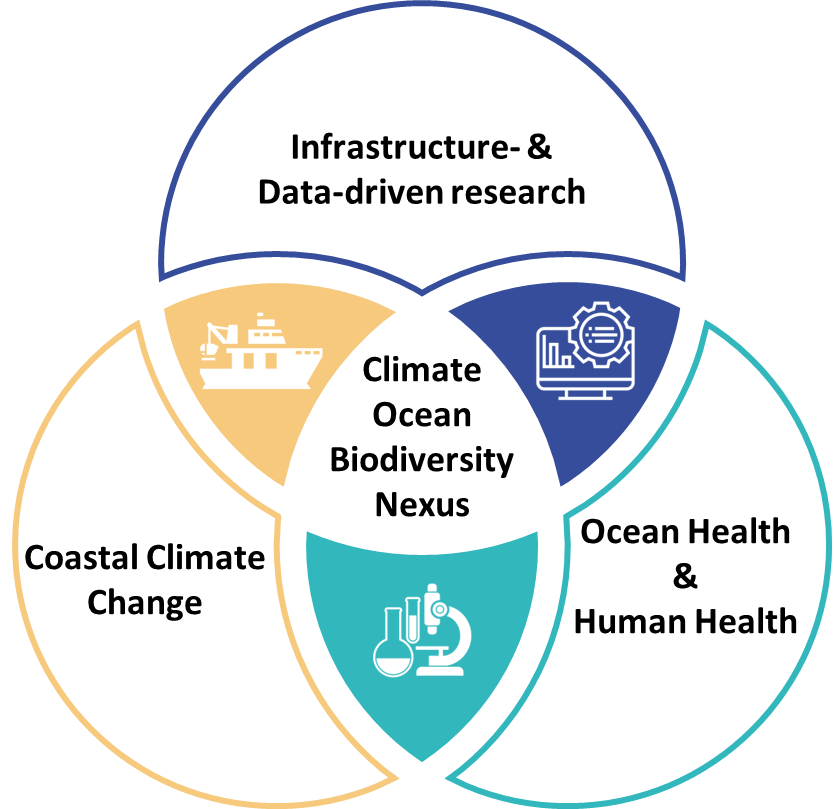Five years after the beginning of its first research agenda, the Research department of VLIZ has picked up speed. At the end of 2022, the department employed no fewer than 47 researchers, who produced a total of 127 publications, 56 of which were A1 publications in scientific journals. 84% of these A1 publications were open access. In 2022, publications written by VLIZ employees were cited 2,547 times. Across all research groups, VLIZ was active in 43 different internal and external research projects.
In addition, the start of a new management agreement with the Flemish government in 2022 entailed several changes for the Research department. As stipulated in the covenant, VLIZ will strongly focus on research into the interface between climate, ocean and biodiversity in the period from 2022 to 2026. Particular attention will be paid to climate change in coastal areas as well as the relationship between the ocean and human health. For this purpose, VLIZ restructured its Research department in 2022. It added two new research groups, ‘Plastics in Global and Local Waters’ and ‘Past, Present and Future Climate Change’, to its six existent research groups (‘Ocean and Human Health’, ‘Life’s Roots and Rates’, ‘Nature Changes and Solutions’, ‘Seascapes Past and Future’, ‘Maritime Society and History’, and ‘Understanding & Optimizing Observations’). These eight research groups are structurally integrated into three research divisions: ‘Ocean and Human Health’, ‘Coastal Climate Change’, and the ‘Marine Observation Centre’.
Finally, the research institute appointed Dr Peter Landschützer as the new Research Manager in 2022. As climate scientist, Peter previously worked at the Max Planck Institute for Meteorology (Hamburg, Germany). With this appointment, VLIZ landed a top transfer and accelerated its investment in research into the effects of climate change on coastal areas.
